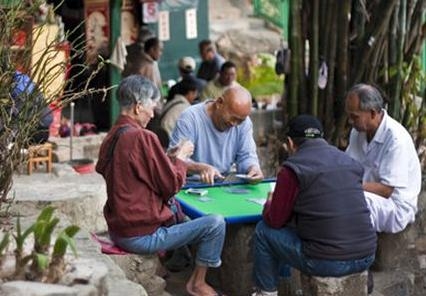
Graying population will slow future growth
Rise in elderly citizen numbers forces government to husband public finances.
Hong Kong has a measure in its 2013-14 budget to form a working group that will study ways to make more comprehensive long-term planning for public financing. Financial Secretary John Tsang said the increase in the number of elderly citizens will result in a surge of expenditure on healthcare and welfare.
Current demographic trends suggest economic growth will continue to taper off in the 2020s and the growth rate will be much lower than the 4.5% growth rate over the past decade.
“A fall in the proportion of working population will reduce economic vibrancy and slow down the momentum of economic growth. These developments will have profound implications for the sustainability of government revenue and public expenditure,” he noted.
To counter the anticipated imbalance, Tsang said he plans to form a working group led by the Treasury Branch of the Financial Services & the Treasury Bureau. He said the group will report to him by the end of this year
"Scholars and experts will be invited to join the working group to explore ways to make more comprehensive planning for our public finances to cope with the ageing population and the Government’s other long-term commitments."
.
According to the government, the number of elderly people aged 65 and over totals 980,000 or 14% of the population. Latest projections estimate that the number of elderly people will increase significantly to 2.56 million by 2041, or 30% of the population.
As for the elderly dependency ratio, 10 working-age people (those aged 15 to 64) supported one dependent elderly person financially in the early 1980s. The ratio, however, has dropped to five people per senior now. In 20 years, the ratio will drop to just two people per senior.
"The increase will result in a surge of expenditure on healthcare and welfare. A fall in the proportion of working population will reduce economic vibrancy and slow down the momentum of economic growth. These developments will have profound implications for the sustainability of government revenue and public expenditure."
Healthcare and social welfare now represent 40% of recurrent government expenditure. The estimated expenditure on elderly care for 2012-13, including social security, elderly services and healthcare services, is $43.4 billion, or 16% of recurrent government expenditure. This spending will increase as the demand for patient beds, residential care homes and community elderly care rises.
With an increase in the number of seniors, a shrinking working population, fewer taxpayers and decelerated economic growth, government revenue growth will drop substantially if our tax regime is unchanged, Tsang said.






















 Advertise
Advertise







